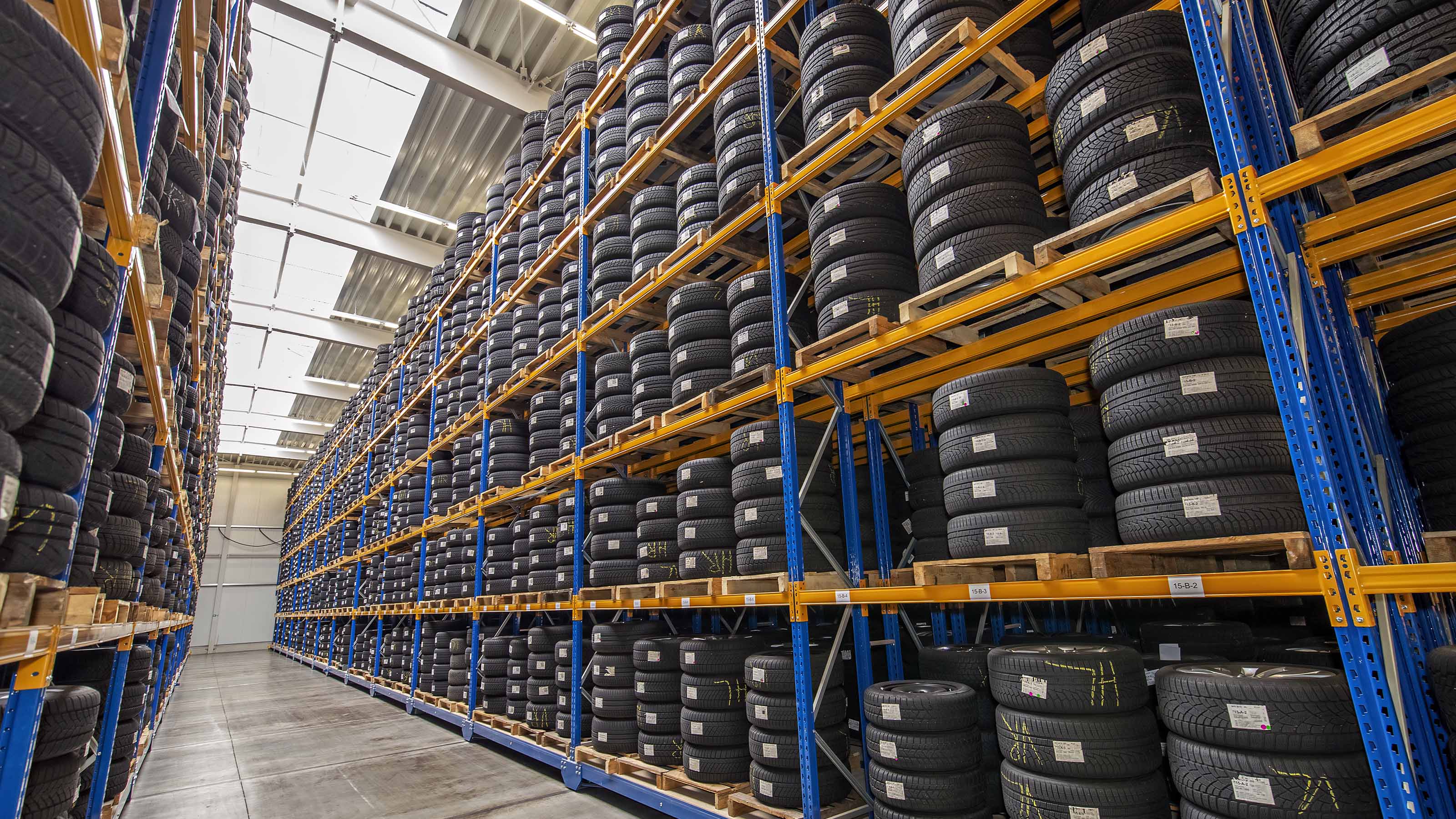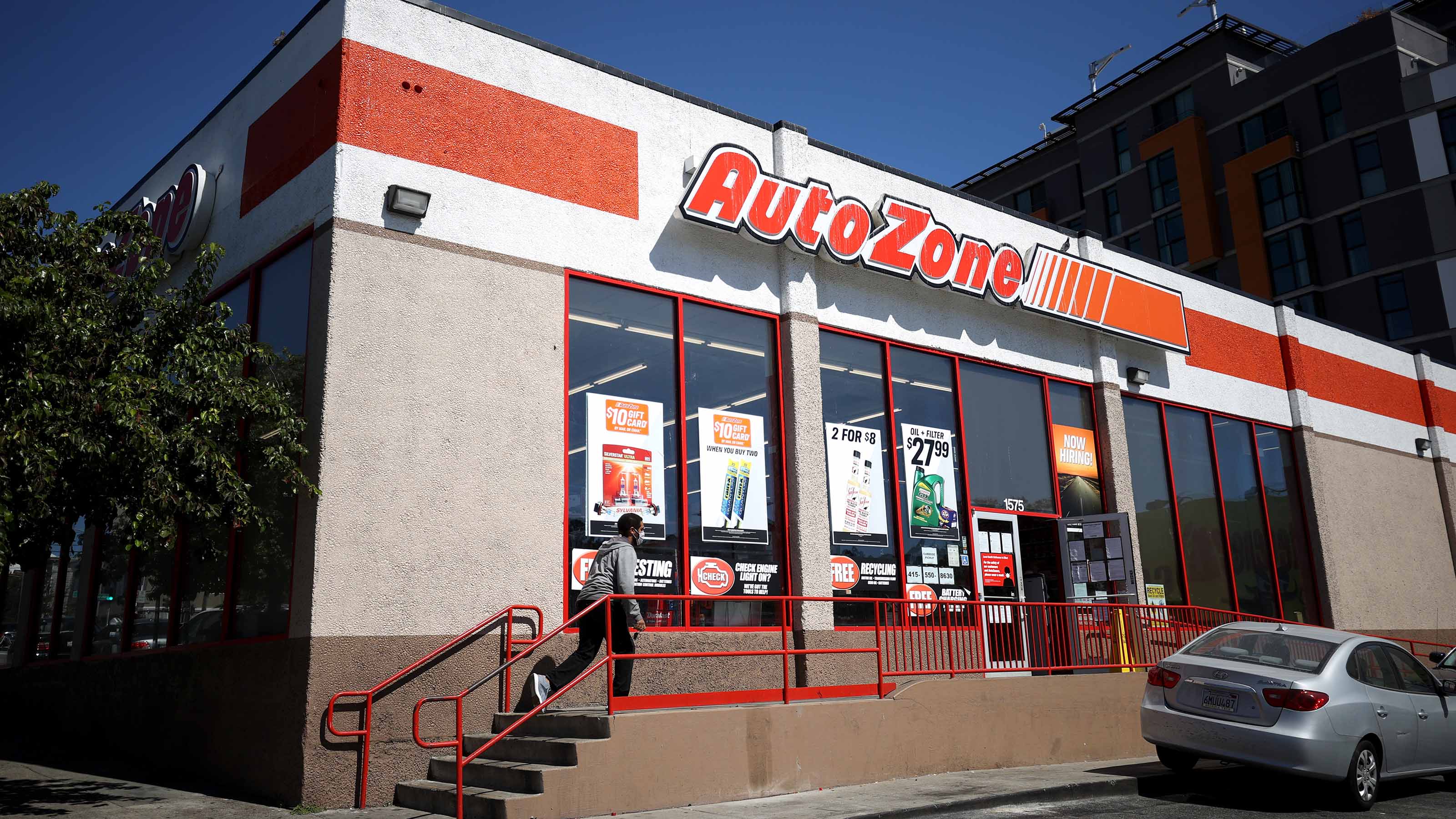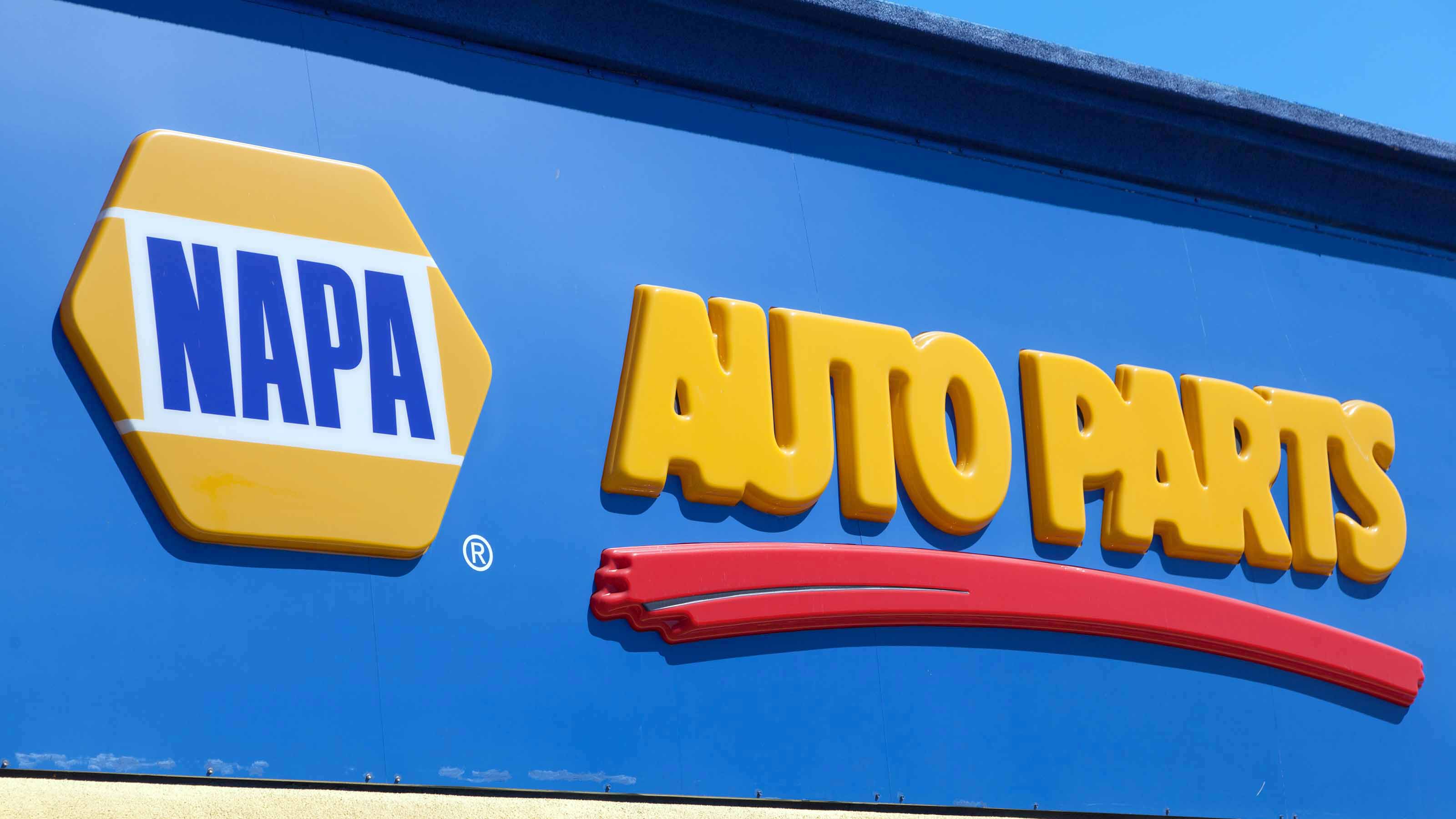5 Auto Parts Stocks to Invest In a Booming Industry
A global chip shortage is just one of many growth drivers for auto parts stocks. There's likely more upside for the thriving industry … and these five names should continue to benefit.


Profit and prosper with the best of Kiplinger's advice on investing, taxes, retirement, personal finance and much more. Delivered daily. Enter your email in the box and click Sign Me Up.
You are now subscribed
Your newsletter sign-up was successful
Want to add more newsletters?

Delivered daily
Kiplinger Today
Profit and prosper with the best of Kiplinger's advice on investing, taxes, retirement, personal finance and much more delivered daily. Smart money moves start here.

Sent five days a week
Kiplinger A Step Ahead
Get practical help to make better financial decisions in your everyday life, from spending to savings on top deals.

Delivered daily
Kiplinger Closing Bell
Get today's biggest financial and investing headlines delivered to your inbox every day the U.S. stock market is open.

Sent twice a week
Kiplinger Adviser Intel
Financial pros across the country share best practices and fresh tactics to preserve and grow your wealth.

Delivered weekly
Kiplinger Tax Tips
Trim your federal and state tax bills with practical tax-planning and tax-cutting strategies.

Sent twice a week
Kiplinger Retirement Tips
Your twice-a-week guide to planning and enjoying a financially secure and richly rewarding retirement

Sent bimonthly.
Kiplinger Adviser Angle
Insights for advisers, wealth managers and other financial professionals.

Sent twice a week
Kiplinger Investing Weekly
Your twice-a-week roundup of promising stocks, funds, companies and industries you should consider, ones you should avoid, and why.

Sent weekly for six weeks
Kiplinger Invest for Retirement
Your step-by-step six-part series on how to invest for retirement, from devising a successful strategy to exactly which investments to choose.
Auto parts stocks have been spiking amid a global chip shortage.
This shortage is a result of the COVID-19 pandemic, which has boosted demand for the personal electronics that chips are used in. And demand for semiconductors has surged beyond capacity for supply.
While the chip shortage has been affecting many industries – including semiconductor stocks – it has been particularly troublesome for automobile manufacturers. This means fewer new cars have been sold, and the demand for auto parts has surged as more people drive used vehicles, which tend to require more maintenance.
While new auto manufacturing is expected to rebound, the outlook for auto parts stocks remains quite bullish.
According to IHS Markit, the average U.S. vehicle age rose to a record high of 12.1 years in 2020. This is expected to continue to increase over the next few years as consumers retain their existing vehicles longer. The longer a car is driven, the more maintenance and parts it will need.
Another growth driver for auto parts stocks that was born out of the pandemic is e-commerce purchase availability. Consumers can now buy auto parts online, which should help drive additional revenue for these suppliers. Plus, the rising demand for electric vehicles (EVs) and new injection systems, as well as turbochargers, makes the auto industry very attractive.
Here are five of the best auto parts stocks to consider going forward. This list of names was curated using the Stock News POWR Ratings system, which measures dozens of fundamental metrics to assess the quality of a stock.
Check them out.
Data is as of July 16. POWR Ratings work on an A-B-C-D-F system.

AutoZone
- Market value: $34.6 billion
- POWR ratings overall rating: C (Neutral)
- POWR Ratings average broker rating: 1.52
AutoZone (AZO, $1,605.30) is the nation's largest auto parts and accessories retailer, with roughly 5,900 stores in the U.S. It operates in the Do-It-Yourself (DIY) retail and the Do-It-for-Me (DIFM) auto parts and products markets. The company sells aftermarket automotive parts, tools and accessories.
In addition to long-term solid industry fundamentals due to the record-high U.S. vehicle age, the company benefits from a strong brand, high customer engagement and the success of its proprietary label products. AZO's leadership standing in the DIY segment has provided a solid national store network that it can leverage to expand DIY sales.
The company is also expected to expand through a combination of new store openings and same-store sales growth. Its omnichannel efforts to improve the customer shopping experience should help boost its market share. AZO has an overall grade of C, translating into a Neutral rating in the POWR Ratings system.
While that is the lowest overall grade among the auto parts stocks on this list, where AZO really shines is in its strong fundamentals, as evidenced by its Quality Grade of A. The company had $976 million in cash as of the most recent quarter, compared with no short-term debt. AZO also has a high return on invested capital (ROIC) of 36.7%.
AutoZone has a Momentum Grade of B due to strong performance over the near, mid, and long-term. For example, AZO stock is up 15.8% over the past month and 38.7% over the past year.
AZO is ranked #32 in the B-rated Auto Parts industry. To see the complete POWR ratings for AutoZone (AZO), click here.

Magna International
- Market value: $25.6 billion
- POWR ratings overall rating: B (Buy)
- POWR Ratings average broker rating: 1.53
Magna International (MGA, $85.01) is one of the world's largest and most diversified auto suppliers. The company manufactures auto interiors, engine parts, interior and exterior trims, body structures, mirrors, electronics and sunroofs. Its capabilities are so diversified, it even designs and assembles complete vehicles.
MGA has been growing in leaps and bounds due to takeovers from competitors and the consolidation of smaller companies. The firm is also benefiting from disruptive technologies such as powertrain electrification and autonomous technologies.
The 2020 U.S. presidential election result was another win for MGA due to the Biden administration's plans to subsidize electric and autonomous vehicle technologies. Plus, automakers are consolidating their purchases with fewer suppliers, making Magna International a prime beneficiary since its offerings are so broad.
MGA's efforts to enhance its portfolio of e-powertrain products and develop advanced driver assistance systems technology also bodes well for its future. The company has an overall grade of B, which translates into a Buy in the POWR Ratings system.
In addition, MGA has a Growth Grade of B due to its future growth prospects. For instance, analysts expect sales to rise 126.3% year-over-year in the second quarter and 25.5% for the full fiscal year. And earnings are forecast to arrive at $1.47 per share in Q2 compared to a per-share loss of $1.47 in the year prior. For all of 2021, earnings are estimated to grow 91.9%.
MGA is also one of the best auto parts stocks in terms of valuation. It has a forward price-to-earnings (P/E) ratio of 9.2, as well as a price-to-free cash flow (P/FCF) ratio of 11.9, the latter of which is well below the industry standard. As such, the company boasts a Value Grade of B.
MGA is ranked #13 in the B-rated Auto Parts industry. Get Magna's (MGA) complete POWR Ratings analysis here.

O'Reilly Automotive
- Market value: $41.9 billion
- POWR ratings overall rating: B (Buy)
- POWR Ratings average broker rating: 1.56
O'Reilly Automotive (ORLY, $601.30) is one of the largest sellers of aftermarket automotive parts, tools and accessories in the country. The company serves both professional and DIY customers. It sells branded and its own-label products, with the latter category comprising nearly half of its sales. Its stores also offer services and programs to customers, such as battery diagnostic testing and check engine light code extraction.
ORLY has been generating strong revenue growth for a long time. In fact, it has notched record sales for 28 consecutive years. Its customer-centric business model and growing demand for technologically advanced auto parts should drive long-term growth. With new car manufacturing slowed by the pandemic and a global chip shortage, used car sales are through the roof, which benefits auto parts stocks.
The company should also benefit from store openings and distribution centers in new regions. O'Reilly Automotive has been opening stores in untapped markets and increasing its store count in less-populated areas. Its competitive edge stems from its dual-market strategy of professional and DIY customers and its strong distribution network.
ORLY has an overall grade of B, which is a Buy rating in our POWR Ratings system. It also has a Sentiment Grade of B, which means it is well-liked by the Wall Street pros. Fifteen analysts currently rate the stock a Buy or Strong Buy, compared to nine who say Hold and not one who thinks the stock is a Sell.
It also has a Quality Grade of A due to a rock-solid balance sheet. The company has more cash than short-term debt, a net profit margin of 16% and a gross margin of 52.6%.
O'Reilly Automotive is ranked #26 in the B-rated Auto Parts industry. Get the full POWR Ratings for O'Reilly Automotive (ORLY) here.

Genuine Parts
- Market value: $18.4 billion
- POWR ratings overall rating: B (Buy)
- POWR Ratings average broker rating: 1.92
Genuine Parts (GPC, $127.61) sells vehicle parts to commercial and retail customers through roughly 9,800 stores worldwide, most of which are independently owned. Its industrial unit, which primarily operates under the Motion Industries banner in the U.S., supplies bearings, power transmission, industrial automation, hydraulic and pneumatic components to maintenance, repair and original equipment manufacturer (OEM) clients.
The company's auto parts division is benefiting from the rising average vehicle age. GPC has also profited from strategic buyouts to improve its product offerings and expand its geographical footprint. For instance, its acquisitions of Alliance Automotive Group in 2017 and PartsPoint Group in 2019 helped expand its global footprint. GPC also took full ownership of Inenco in 2019, which helped bolster growth.
Additionally, GPC's aggressive e-commerce and cost-cutting initiatives during the pandemic have set the company up for success. Plus, as the automotive and industrial parts industry consolidates around larger participants, GPC is expected to benefit from this trend in the years ahead. GPC has an overall grade of B and a Buy rating in our POWR ratings system.
GPC is one of the best auto parts stocks in terms of technical performance. The shares are up 27% so far in 2021 and 47% over the past twelve months, earning Genuine Parts a Momentum Grade of B.
The company also has a Quality Grade of B based on its solid fundamentals. GPC had $1.1 billion in cash as of the most recent quarter compared with only $160 million in short-term debt. Plus, GPC has a current ratio of 1.2, indicating that its assets are larger than its liabilities at the moment.
Genuine Parts is ranked #11 in the B-rated Auto Parts industry. Click here for Genuine Parts' (GPC) complete POWR Ratings analysis.

LKQ Corp.
- Market value: $14.9 billion
- POWR ratings overall rating: A (Strong Buy)
- POWR Ratings average broker rating: 1.32
LKQ Corp. (LKQ, $49.47) is a leading global distributor of non-OEM automotive parts. The company was initially formed in 1998 as a consolidator of auto salvage operations in the U.S. It has expanded its scope to include the distribution of new mechanical and collision parts, specialty auto equipment and remanufactured and recycled parts in Europe and North America.
In addition to favorable fundamentals for auto parts distributors, LKQ should continue to benefit in the long term from organic growth, as well as domestic and international acquisitions. The firm has also developed relationships with auto insurance companies as the largest supplier of alternative collision parts to repair shops. Its collision business is expected to see rising demand from increasing auto claims as more drivers are on the road now.
The increasing adoption of hybrid vehicles presents new revenue opportunities for the company, including battery-related parts. In addition, its Specialty segment is seeing massive growth due to robust demand for recreational vehicles and parts. In the first quarter alone, this area reported a 30.9% growth rate.
Among the auto parts stocks featured here, LKQ is the only one with an overall grade of A, which is a Strong Buy in our POWR Ratings system.
The company has a Growth Grade of B, as both revenue and earnings growth have been solid. For instance, earnings grew 64.9% year-over-year in the first quarter and are expected to rise 41.5% in the second quarter. Q2 sales are forecast to increase 28.2% year-over-year, coming off a 5.7% rise in revenues in Q1.
LKQ also has a Sentiment Grade of A as it is highly favored by analysts. Nine analysts rate the company a Buy or Strong Buy, compared to two Holds and zero Sells.
LKQ is ranked #4 in the B-rated Auto Parts industry. Get LKQ Corp.'s (LKQ) complete POWR Ratings analysis here.
Profit and prosper with the best of Kiplinger's advice on investing, taxes, retirement, personal finance and much more. Delivered daily. Enter your email in the box and click Sign Me Up.

David Cohne has 20 years of experience as an investment analyst and writer. Prior to StockNews, David spent 11 years as a consultant providing outsourced investment research and content to financial services companies, hedge funds and online publications. David enjoys researching and writing about stocks and the markets. He takes a fundamental quantitative approach in evaluating stocks for readers.
-
 Stocks Sink With Alphabet, Bitcoin: Stock Market Today
Stocks Sink With Alphabet, Bitcoin: Stock Market TodayA dismal round of jobs data did little to lift sentiment on Thursday.
-
 Betting on Super Bowl 2026? New IRS Tax Changes Could Cost You
Betting on Super Bowl 2026? New IRS Tax Changes Could Cost YouTaxable Income When Super Bowl LX hype fades, some fans may be surprised to learn that sports betting tax rules have shifted.
-
 How Much It Costs to Host a Super Bowl Party in 2026
How Much It Costs to Host a Super Bowl Party in 2026Hosting a Super Bowl party in 2026 could cost you. Here's a breakdown of food, drink and entertainment costs — plus ways to save.
-
 Stocks Fall Again as Big Tech Struggles: Stock Market Today
Stocks Fall Again as Big Tech Struggles: Stock Market TodayThe economic calendar was a bright spot for Wall Street Wednesday, with new home sales climbing to a three-year high.
-
 Stocks Drop on Mag 7 Weakness: Stock Market Today
Stocks Drop on Mag 7 Weakness: Stock Market TodayThe main indexes retreated from all-time-high territory as several of Wall Street's biggest stocks declined.
-
 Are These the Next Stocks to Split?
Are These the Next Stocks to Split?Netflix's recent stock split makes its shares more accessible to investors. Could these high-priced stocks be next?
-
 The 24 Cheapest Places To Retire in the US
The 24 Cheapest Places To Retire in the USWhen you're trying to balance a fixed income with an enjoyable retirement, the cost of living is a crucial factor to consider. Is your city the best?
-
 Five Stocks With Solid Growth History and a Promising Outlook
Five Stocks With Solid Growth History and a Promising OutlookFive reasonably priced stocks with solid growth history and a good chance of delivering earnings even if the economy softens.
-
 Analysts' Top S&P 500 Stocks to Buy Now
Analysts' Top S&P 500 Stocks to Buy NowWynn Resorts, Steel Dynamics and Danaher make Wall Street's list of top-rated stocks this month. Some of the other names might surprise you.
-
 5 Stocks to Sell or Avoid Now
5 Stocks to Sell or Avoid Nowstocks to sell In a difficult market like this, weak positions can get even weaker. Wall Street analysts believe these five stocks should be near the front of your sell list.
-
 Financial Abuse Is on the Rise: What It Is and What to Do About It
Financial Abuse Is on the Rise: What It Is and What to Do About ItDomestic violence almost always includes financial abuse. Here’s help on identifying and understanding it and how to get help and leave in a safe way.
